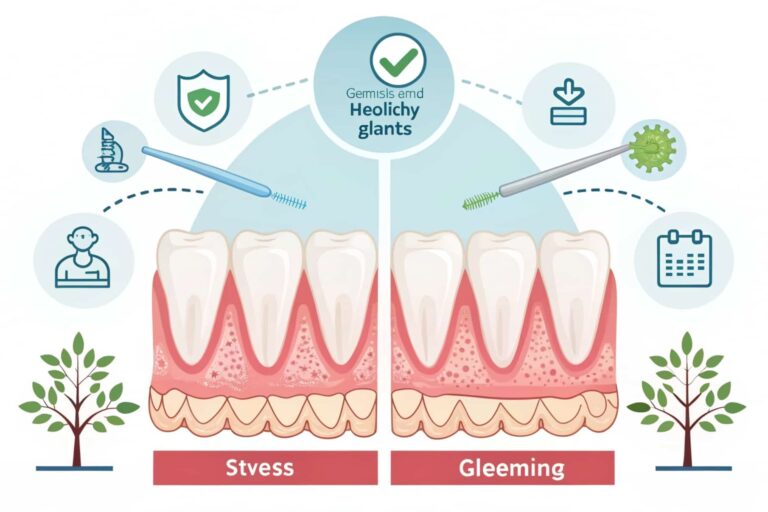What Disease Does Josie Have In Klara And The Sun – Truth You Can Trust!
Klara and the Sun by Kazuo Ishiguro is a deeply reflective novel that examines humanity through the lens of artificial intelligence and societal advancement. At the heart of the story is Josie, a teenage girl suffering from a mysterious illness. Though her disease is never named, it plays a crucial role in shaping the emotional and ethical landscape of the novel. Through Josie’s condition, Ishiguro highlights the consequences of genetic modification, parental expectations, and emotional vulnerability in a technologically driven society.
Her illness becomes a powerful symbol of the risks tied to progress and the fragility of life itself. As her health wavers, so does the stability of the world around her, revealing the hidden tensions within family and community. Ishiguro uses Josie’s struggle to provoke deeper questions about identity, love, and what it truly means to be human.
What Is the Nature of Josie’s Illness?
Kazuo Ishiguro intentionally leaves Josie’s illness unnamed. However, several clear signs allow readers to interpret it with clarity and nuance. Josie’s condition is chronic, causing fatigue, weakness, and occasional life-threatening episodes. The novel sets the scene with Josie being homeschooled due to her poor health, often unable to socialize or leave home for long periods.
From a literary standpoint, her sickness is symbolic, representing the potential costs of a society that prioritizes genetic “lifting”—a form of gene editing used to improve children’s academic and social potential. This enhancement, though widely accepted in Josie’s society, appears to come with serious medical risks.
How Is Genetic Lifting Connected to Josie’s Health?
To understand Josie’s illness, one must first understand what “lifting” means in the novel. In Ishiguro’s dystopian setting, children are genetically altered to boost intelligence and performance. This is not optional; without lifting, children like Rick (Josie’s best friend) are socially excluded, unable to attend elite colleges or succeed in the modern world.
But lifting is not without consequences. The novel hints that Josie’s illness is a side effect of her being lifted—a medical complication that is not entirely uncommon among lifted children.
Comparing Lifted vs. Unlifted Children in the Novel:
| Aspect | Lifted Children (like Josie) | Unlifted Children (like Rick) |
| Genetic Enhancement | Yes | No |
| Social Status | Privileged | Marginalized |
| Access to Education | Elite institutions | Limited |
| Health Risks | Higher (complications are likely) | Lower |
| Mental Pressure | High expectations | Low but isolated |
Through this lens, Josie’s illness is not just personal—it reflects a systemic issue in her society, where human value is tied to performance, and medical ethics are often overlooked for competitive gains
What Symptoms and Behavioral Signs Reveal Josie’s Illness?
Although Ishiguro never offers a direct medical diagnosis, Josie exhibits several physical and emotional symptoms that suggest a serious autoimmune or mitochondrial disorder, possibly something similar to juvenile systemic lupus or another gene-related metabolic disease.
Some symptoms observed in the novel include:
- Frequent Fatigue: Josie regularly experiences deep physical fatigue that limits her ability to engage in everyday activities. This ongoing tiredness affects her mobility and concentration, creating a sense of fragility that permeates her character and influences how others interact with and care for her.
- Sensitivity to Physical Activity: Even mild physical exertion, like walking or standing for extended periods, can leave Josie feeling drained. Her body reacts severely to effort, suggesting an underlying chronic illness that limits her physical endurance and contributes to her need for constant rest and monitoring.
- Social Isolation: Josie is homeschooled and rarely interacts with other children, which reinforces her emotional distance. Her illness not only isolates her physically but also socially, preventing her from participating in the normal experiences of adolescence and contributing to her feelings of loneliness and difference.
- Sudden Health Declines: Throughout the novel, Josie’s condition occasionally worsens without warning, causing fear and uncertainty among her family and friends. These rapid declines in health underscore the seriousness of her illness and add emotional tension, highlighting her vulnerability and the fragility of her life.
- Dependence on Caregivers: Josie is highly dependent on her mother, Chrissie, and others for daily needs and emotional support. Her inability to function independently due to her health creates a constant state of concern, illustrating the physical and emotional toll her illness takes on those around her.
Throughout the story, her mother, Chrissie, is deeply anxious about Josie’s health and even consults with a strange, mysterious man known as Mr. Capaldi to develop a possible “substitute” version of Josie in case she dies, further emphasizing the severity of her condition.
How Does Klara’s Faith Influence Josie’s Healing?
Klara, Josie’s Artificial Friend, believes in the healing power of the Sun. Her robotic logic combines with a form of spiritual faith, where she prays to the Sun for Josie’s recovery. While this may seem naïve or fantastical, Ishiguro uses Klara’s faith to symbolize hope in uncertain times.
Klara’s belief mirrors how humans often respond to sickness: turning to rituals, faith, and emotion, especially when logic fails to provide solutions. Through this, Ishiguro paints a compelling parallel between AI consciousness and human spirituality, using Josie’s condition as the thread that binds the two.
What Ethical Questions Does Josie’s Illness Raise About Parental Pressure?
- Balancing Care and Control: Chrissie’s love for Josie is evident, yet her desire for success leads her to make decisions that blur the line between protection and pressure.
- Risking Health for Ambition: Josie’s mother knowingly accepts the dangers of genetic lifting, prioritizing social status and achievement over long-term well-being.
- Considering Technological Replacement: The idea of recreating Josie through artificial intelligence shows how far a parent might go to avoid grief—even if it means replacing authenticity.
- Questioning the Nature of Identity: Chrissie’s willingness to substitute Josie challenges the idea of what makes someone unique—memories, personality, or presence.
- Redefining Unconditional Love: The story asks whether true love accepts imperfections or if it bends to the convenience and promise of technological solutions.
What Does Josie’s Condition Symbolize in the Novel?
Josie’s frailty reflects more than physical decline. It symbolizes a society on the brink of moral and ethical collapse, where human life is measured in performance and status. Her vulnerability reveals the cracks in a system that promotes competition, perfection, and elitism at the cost of authentic connection and care.
Her condition is also a mirror to Klara’s journey. As Josie weakens, Klara grows emotionally more complex—showing that compassion, observation, and love may be the most human traits, even in a machine.
Josie’s illness acts as a quiet protest against a world obsessed with control and predictability. Her suffering exposes the limitations of science when it forgets empathy. The contrast between Josie’s fragility and Klara’s emotional depth challenges the reader’s understanding of humanity. Through her, Ishiguro reminds us that being human is less about perfection and more about vulnerability, connection, and care.
How Does Josie’s Illness Highlight Social Isolation and Its Psychological Impact?
Josie’s illness leads to more than just physical weakness—it isolates her emotionally. Despite having access to virtual education, she spends most of her time alone, separated from peers and the outside world. Her only close companion is Rick, who faces a different kind of exclusion for being unlifted. Together, they reflect a generation shaped by pressure and isolation.
Their friendship highlights a society that values achievement over empathy. Ishiguro uses Josie’s loneliness to explore the deep emotional toll of a world where true human connection is quietly slipping away. This emotional isolation becomes a silent burden, affecting their mental well-being over time. In a world built for perfection, their quiet struggles are a powerful reminder of the need for compassion and understanding.
Does Josie’s Illness Affect Relationships and PeHowrsonal Growth?
Josie’s illness deeply impacts those around her, prompting emotional growth and change. While she faces many challenges, her condition helps others like Chrissie, Klara, and Rick rethink their values and feelings. Josie moves from being seen as weak to becoming a source of strength and insight. Klara, especially, changes from a quiet watcher to a caring protector and believer.
This shows how illness can reveal hidden truths and bring out the best in people, helping them grow in ways health might not. Through Josie’s struggles, the characters learn empathy, resilience, and the importance of genuine human connection. Her presence challenges them to face their fears and grow emotionally. Ultimately, Josie’s illness acts as a powerful force for transformation in the story.
What Key Themes Are Explored Through Josie’s Illness?
| Theme | Manifestation in the Novel |
| Genetic Ethics | Lifting causing illness |
| AI vs Human Emotion | Klara showing empathy through Josie’s decline |
| Parental Pressure | Chrissie’s obsession with Josie’s success |
| Mortality and Substitution | AI replica proposed if Josie dies |
| Social Division | Rick (unlifted) vs Josie (lifted) |
| Faith and Hope | Klara’s devotion to the Sun |
FAQs:
How does Josie’s illness affect her daily life?
Josie’s illness limits her physical abilities, making everyday tasks difficult. She depends more on others for support and faces isolation from peers. This affects her emotionally and socially, as she struggles with feelings of loneliness and difference. Her condition shapes how she sees the world and interacts with those around her.
What role does Josie play in the emotional growth of other characters?
Josie’s illness acts as a catalyst for change. Through her struggles, she influences characters like Klara and Rick to develop empathy, patience, and emotional strength. Her presence forces them to reconsider their values and grow in understanding, helping them mature and become more compassionate toward others and themselves.
How does the story show the theme of social isolation through Josie’s illness?
Josie’s condition separates her from many of her peers, emphasizing the loneliness that illness can bring. Even with virtual connections, she feels emotionally distant and excluded. This isolation highlights the challenges faced by those who are physically limited, showing the emotional toll and the need for connection despite barriers.
In what ways does Josie’s illness reveal hidden truths about the characters?
Josie’s illness exposes the true feelings and fears of the people around her. It reveals their vulnerabilities, insecurities, and strengths, forcing them to face emotions they might otherwise hide. This transparency leads to deeper honesty, emotional growth, and stronger bonds between characters as they confront realities they once avoided.
Can Josie’s illness be seen as a source of hope in the story?
Despite the hardships Josie faces, her illness also represents hope and resilience. Her journey encourages characters to grow emotionally and shows how love and friendship can overcome difficulties. It teaches that even in struggle, people can find strength and build meaningful connections that inspire courage and optimism.
Conclusion:
Josie’s illness in Klara and the Sun goes beyond being just part of the story. It reflects the high costs of technological progress and the fragile nature of life. Though her disease is not named, it connects deeply with themes like genetic engineering, consciousness, and the power of love and empathy. Through Josie’s experience, Ishiguro explores what it truly means to be human.
The novel suggests that sometimes the purest understanding comes not from technology but from simple, caring hearts like Klara’s, who believes in hope and the Sun. It challenges readers to consider the value of compassion in a world shaped by science. Ultimately, it asks us to cherish the connections that make us human above all else.
Related post:






